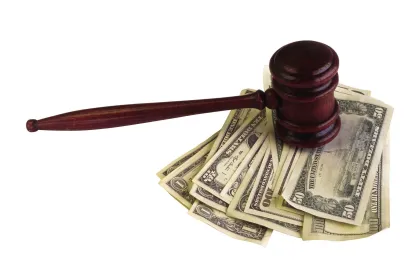The U.S. Court of Appeals for the Eighth Circuit found that unwanted, prerecorded phone messages to consumers, even without any other alleged harm, met the injury-in-fact requirement for Article III standing to bring a Telephone Consumer Protection Act (TCPA) claim. However, the Eighth Circuit also concluded that the TCPA-mandated statutory damages of $1.8 billion would violate the Due Process Clause of the U.S. Constitution. The case is Golan v. FreeEats.com–the decision was issued on July 16.
The TCPA prohibits “initiat[ing] any telephone call to any residential telephone line using a prerecorded voice to deliver a message without the prior consent of the called party,” subject to certain exceptions. Among such exceptions is one for calls made for a commercial purpose that don’t include or introduce an advertisement or constitute telemarketing. The TCPA provides for recovery of the greater of “actual monetary loss” or $500 in damages per violation.
In the case, the plaintiffs filed a putative class action complaint alleging that the defendants had initiated the phone calls to them as part of a telemarketing campaign to promote a movie in violation of the TCPA. The defendants included the telemarketing company and an individual investor in the movie. The district court dismissed the plaintiffs’ complaint, concluding that the plaintiffs lacked standing to bring a TCPA claim because the messages they received did not qualify as advertising or telemarketing. The Eighth Circuit reversed, ruling that messages constituted “telemarketing” because they were initiated for the purpose of promoting the movie, and the plaintiffs had Article III standing to bring a TCPA claim.
The case subsequently proceeded to a jury trial. At the close of evidence, the district court entered judgment against the telemarketing company and the jury returned a verdict in favor of the investor and other defendants.
The telemarketing company filed a post-trial motion for reduction of damages, arguing that the TCPA-mandated statutory damages of $1.6 billion ($500 per call for more than 3.2 million calls) were so excessive that they violated the Due Process Clause. The district court agreed and reduced the damages to $10 per call for a total of approximately $32.4 million.
In ruling on the plaintiffs’ appeal from the judgment awarding the reduced damages, the Eighth Circuit initially revisited its prior Article III standing ruling, which was issued before the U.S. Supreme Court’s Spokeo decision. The Eighth Circuit concluded that the intangible injury claimed by the plaintiffs (the receipt of two answering machine messages without prior consent) was a concrete injury that conferred standing because it bore “a close relationship to the types of harms traditionally remedied by tort law, particularly the law of nuisance” and that, in the TCPA, Congress had elevated such injuries to the status of legally cognizable injuries.
The Eighth Circuit rejected the plaintiffs’ argument that the district court had abused its discretion by refusing to give the jury instructions regarding the individual investor’s direct liability. Referencing the TCPA text that makes it “unlawful for any person…to initiate any telephone call” that violates the TCPA’s prohibitions, the Eighth Circuit stated that the instructions sought by the plaintiffs did not accurately state the law because it would have allowed direct liability against a defendant who did not “initiate” the calls, meaning someone who did not take the steps necessary to physically place the calls.
The Eighth Circuit agreed with the plaintiffs that, because nothing in the TCPA itself allowed for the reduction of statutory damages, such damages could only be reduced if the award would be unconstitutional. The Eighth Circuit called $1.6 billion “a shockingly large amount” when compared to the telemarketer’s conduct. It noted that the telemarketer “plausibly believed” it was not violating the TCPA because it had prior consent to call the recipients about the topic that was the movie’s predominant theme, only recipients who opted in after hearing two polling questions heard a message about the movie, only about 7 percent of the calls went beyond the two polling questions, and the call campaign was conducted for only about a week. Quoting a 1919 U.S. Supreme Court decision dealing with the constitutionality of statutory penalties, the Eighth Circuit concluded that “under these facts, $1.6 billion is ‘so severe and oppressive as to be wholly disproportioned to the offense and obviously unreasonable.’”








 />i
/>i

